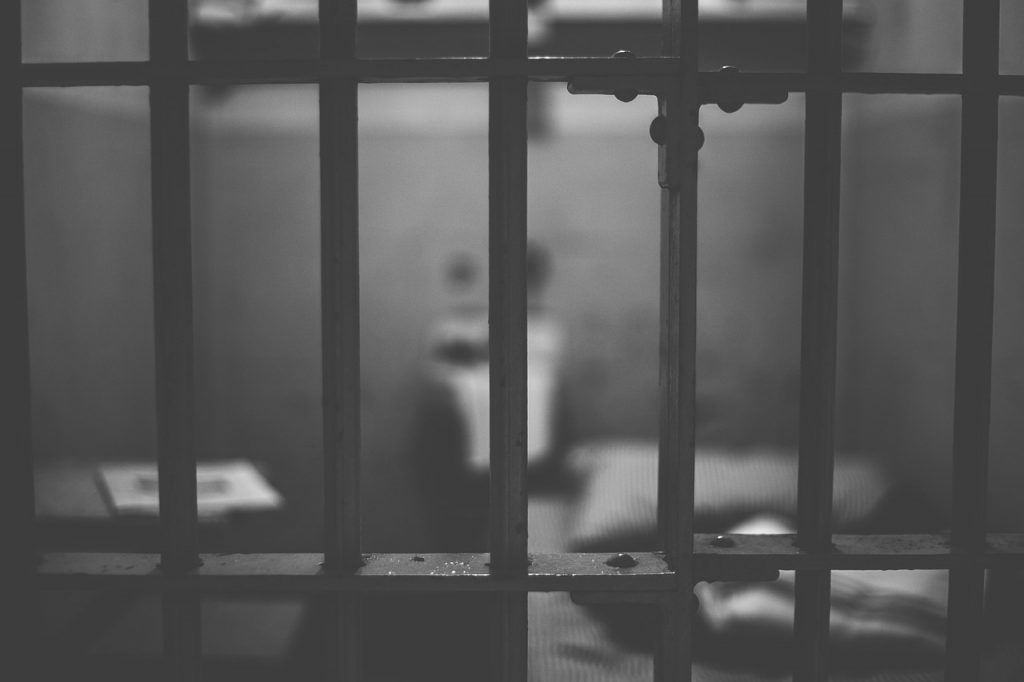Published on: 24th November 2025
Authored by: Garima Aggarwal
Asian Law College, Noida
ABSTRACT
As citizens of an independent nation, we enjoy freedom to act according to our will. However, the term “free to do” raises important questions: Is this freedom limited? Can everyone do anything while living in society? Since independence, India has undergone numerous progressive modifications. Gradually, we have developed laws to be followed while living in society, which necessarily limit the concept of absolute freedom. Criminal law and constitutional law prescribe certain duties that must be followed by every citizen. Rights come with corresponding duties that balance harmony and peace in society, creating a framework that maintains social order. Significantly, any activity that disrupts this harmony is punishable in the eyes of law.
PROLOGUE
In the Indian legal system, the concept of ‘bail’ is a cornerstone of criminal law. The concept of bail is fundamentally a matter of human rights and personal liberty. Under the Bharatiya Nagarik Suraksha Sanhita (BNSS), 2023, which replaced the Code of Criminal Procedure, bail is comprehensively defined and regulated.
India has one of the highest rates of pretrial detention globally, with a substantial portion of the prison population consisting of undertrial prisoners awaiting conviction. The current system for granting bail is often inadequate and formulates a negative impact on the social economy. Many innocent people who have not committed any offense suffer due to delays in trials. The primary concern relates to a lack of consistency in bail decisions, which leads to unfair outcomes.
The issue becomes particularly sensitive when we examine the reform guidelines for bail as a fundamental objective. In many cases, especially those involving non-bailable offenses, all statutory components must be satisfied before bail can be granted. The objective is ensuring uniformity and certainty in bail decisions to secure fair trials across India. This requires enacting specific legislation aimed at bail reform to ensure more consistent and fair practices, evaluating the entire system for its effectiveness, and identifying areas that require further improvement to develop comprehensive and holistic solutions to bail reform.
CONSTITUTIONAL FOUNDATIONS AND PRINCIPLES OF BAIL REFORM IN INDIA
The right to bail is rooted in Article 21 of the Indian Constitution, which guarantees the right to life and personal liberty. Under the Bharatiya Nagarik Suraksha Sanhita (BNSS), bail is granted as a matter of right in bailable offenses, and the accused can request bail as a matter of right in the first instance. However, in many cases where the accused is innocent, they suffer during trial due to delays in bail proceedings. This violates their fundamental right to liberty and involves serious questions of law. As the adage goes, “Justice delayed is justice denied.”
Nevertheless, it remains within the discretion of the judge whether to grant bail or not. In such circumstances, the prosecution must establish reasonable doubt against the accused. This requirement of reasonable doubt sometimes formulates delays in justice and, in many cases, results in prolonged preventive detention, which is addressed in the Indian Constitution under Article 22.
In the landmark case of State of Rajasthan v. Balchand, the Supreme Court held that the basic rule is bail, not jail. The case established the principle that “bail is the rule and jail is the exception”—a concept that has become fundamental to India’s criminal justice system.
CHALLENGES AND CRITICISMS OF THE EXISTING BAIL SYSTEM
An analysis of the current bail system reveals several significant loopholes that require review. First, the culture of adjournment pervades all court procedures. The phrase “Tarikh pe Tarikh” (date after date) has become emblematic of the bail system’s exhaustive nature, which leads to delays in justice. India has one of the highest pretrial detention rates globally, resulting in significant overcrowding in prisons. Individuals awaiting trial but not yet convicted constitute a substantial portion of the prison population. This overcrowding strains resources and raises serious questions about fairness and justice, directly violating the fundamental right to life, personal liberty, and freedom.
The current system is often particularly harsh and unfair to those who struggle to meet bail conditions. Prisoners who are not financially competent or who face financial crises often experience delays in proceedings due to their inability to meet bail requirements.
In the landmark case of Hussainara Khatoon v. State of Bihar, the Supreme Court affirmed that free legal services are crucial for ensuring a reasonable, fair, and just legal process for the accused, as guaranteed by Article 21. This case highlighted the plight of undertrial prisoners and established important precedents for legal aid.
RECENT LEGISLATION AND POLICY REFORMS
India’s bail system has undergone significant reforms recently, aiming to balance individual rights with social interests. As Roscoe Pound emphasized in jurisprudence, individual and social interests must be balanced in society. This balance has been pursued through legislative amendments and policy initiatives.
The Bharatiya Nyaya Sanhita (BNS), 2023, which replaced the Indian Penal Code, introduced important provisions. For the first time, offenders who have served one-third of their maximum potential sentence are entitled to bail, except in cases involving serious criminal offenses. The BNSS emphasizes the timely disposal of bail applications, aiming to reduce the prolonged detention of undertrial prisoners.
In the case of Satender Kumar Antil v. CBI, the Supreme Court acknowledged the critical role of India’s bail system in the ongoing incarceration crisis. The judgment noted that overcrowding jails with undertrial prisoners ignores the fundamental principle of “presumption of innocence.”
The Court issued comprehensive guidelines on bail laws, including mandated timelines for bail application decisions and suggestions for dedicated legislation on bail procedures. It is mandatory to have strict policies regarding all bail matters to ensure fairness and justice for all undertrial prisoners.
Under the BNSS, there are four types of bail: Regular Bail, Anticipatory Bail, Interim Bail, and Default Bail, each governed by specific sections. Each type involves a substantial procedure, which contributes to delays in the trial process. There is an urgent need for procedural reforms that can improve the overcrowded conditions of prisons and expedite bail proceedings.
During trial proceedings, accused persons often face humiliating situations in society. Beyond mere humiliation, the harm to their reputation can destroy their entire lives, particularly when they are ultimately found innocent.
Reform in legislation for the bail system in India must be flexible and respectful of fundamental rights, specifically in bailable offenses. Bail is a matter of right where the accused can claim a reasonable period to prove their innocence. The development of clear policies in bail matters is necessary for the legal system, both in respect of citizens’ rights and in the interest of society at large.
CONCLUSION
A comprehensive examination of bail reform in India, with a focus on personal liberty, must address the foundations established by Article 21 and critically analyze prison overcrowding, the plight of undertrial prisoners, the presumption of innocence, and the right to a speedy trial. The current exhaustive procedures contribute to overcrowding and the prolonged detention of awaiting prisoners.
The objective of bail reform in India is to reduce high undertrial incarceration rates and address the systemic issues that perpetuate injustice. There is a clear need for uniform bail legislation to reduce arbitrariness and ensure fairness in the bail system. The broader implications concern justice accessibility and individual rights protection in India’s evolving criminal justice framework, with the ultimate goal of achieving equal justice for all as a fundamental right.
REFERENCES
- Bail Reform Law Analysis, Juris Centre, https://juriscentre.com/wp-content/uploads/2024/07/bail-reform-law-by-astha-shrivastava-bbau.pdf
- Right to Bail in India, Study IQ, https://www.studyiq.com/articles/right-to-bail-in-india/
- Reform of Bail Laws in India: Balancing Liberty and Security under BNSS, Law Article, https://lawarticle.in/reform-of-bail-laws-in-india-balancing-liberty-and-security-under-bnss/
- The Anomaly of Judicial Discretion in Grant of Bail: A Critical Analysis, Manupatra, https://articles.manupatra.com/article-details/THE-ANOMALY-OF-JUDICIAL-DISCRETION-IN-GRANT-OF-BAIL-A-CRITICAL-ANALYSIS
- State of Rajasthan v. Balchand, (1997) 4 SCC 308
- Hussainara Khatoon v. State of Bihar, AIR 1979 SC 1369
- Satender Kumar Antil v. CBI, (2022) 10 SCC 51




